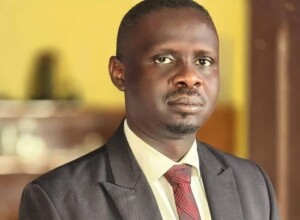Lawyers fear for the life of tortured detainee
Detained activist Seifelislam Essameldin Mohamed suffers from frequent convulsions and poor hearing and sight as a result of being tortured in detention. The authorities reportedly hampered his treatment in a hospital in Khartoum on Tuesday. The Emergency Lawyers launched a campaign on social media for his release.
 Seifelislam Mohamed when he was transferred to the hospital after being severely beaten in detention (Emergency Lawyers)
Seifelislam Mohamed when he was transferred to the hospital after being severely beaten in detention (Emergency Lawyers)
Detained activist Seifelislam Essameldin Mohamed suffers from frequent convulsions and poor hearing and sight as a result of being tortured in detention. The authorities reportedly hampered his treatment in a hospital in Khartoum on Tuesday. The Emergency Lawyers launched a campaign on social media for his release.
Lawyer Rehab El Mubarak told Radio Dabanga’s Sudan Tour programme yesterday that Mohamed was detained more than two months ago. The authorities charged him with causing 'criminal damage' without providing sufficient evidence for the charge. Lawyers were not allowed to see him until 15 days after his detention.
El Mubarak reported a significant deterioration in his health as a result of being severely beaten in detention. She explained that he regularly suffers from loss of consciousness, convulsions, and uncontrollable shivering all over his body.
He was transferred to a hospital where the doctors wanted to keep him for further examinations and care, but the authorities refused his stay in the hospital and impeded the conduct of examinations.
The lawyer expressed her fears of losing his life if treatment is continuously denied and referred to similar cases in the past. She emphasised that his relatives were shocked to see him during the court session due to his deteriorating health condition.
The Unified Doctors Office also confirmed that Mohamed is suffering from critical health conditions that require urgent treatment. In a statement yesterday, they said explained that during Tuesday’s hospital examination Mohamed’s condition was found to be so unstable that he requires hospitalisation and close monitoring.
They confirmed that the authorities, however, returned him to prison despite the hospital’s warnings.
The doctors’ office stressed that the authorities have no right to keep him in prison while he is this ill and demanded his immediate transfer to the hospital to receive the necessary treatment.
They said that he suffers from physical and psychological ailments and needs a comprehensive review by consultants from different specialties to assess his physical and psychological condition.
'The torture of pro-democracy activists in detention aims to break the revolutionaries in order to get confessions and to fabricate charges' – Psychiatrist Amal Jabrallah
Last month, Sudanese psychiatrist Amal Jabrallah warned maltreatment and torture by the authorities is rapidly increasing in Sudan. Jabrallah told Radio Dabanga that the torture of pro-democracy activists and demonstrators “aims to break the revolutionaries in order to get confessions and to fabricate charges”.
Investigation
The Emergency Lawyers met the Attorney General on Tuesday and he agreed to investigate the violence against detainees in the Khartoum Central Section Police Station, to provide Form 8* proofs, and to inform the prosecution.
The two parties also agreed that the Public Prosecution office will inspect the police stations and prisons, review the health status of those being held there, and will investigate of the cases of missing people.

(social media)
El Zein Osman is one of the many protesters who went missing during the June 30 protest marches. His relatives searched for him in detention centres in Khartoum but to no avail. They now ask other protesters via social media if they have seen him.
Both parties also explained that they will try to move the files the files of killed protesters and create a joint mechanism between the Public Prosecution and Emergency Lawyers to follow-up on the cases.
* In Sudan, medical evidence of an assault is admitted solely via the so-called Form 8. It can be issued only by police stations or approved hospitals and clinics. Critics state that Form 8 is “glaringly inadequate” as sufficient medical evidence is often very difficult to obtain.











 and then
and then